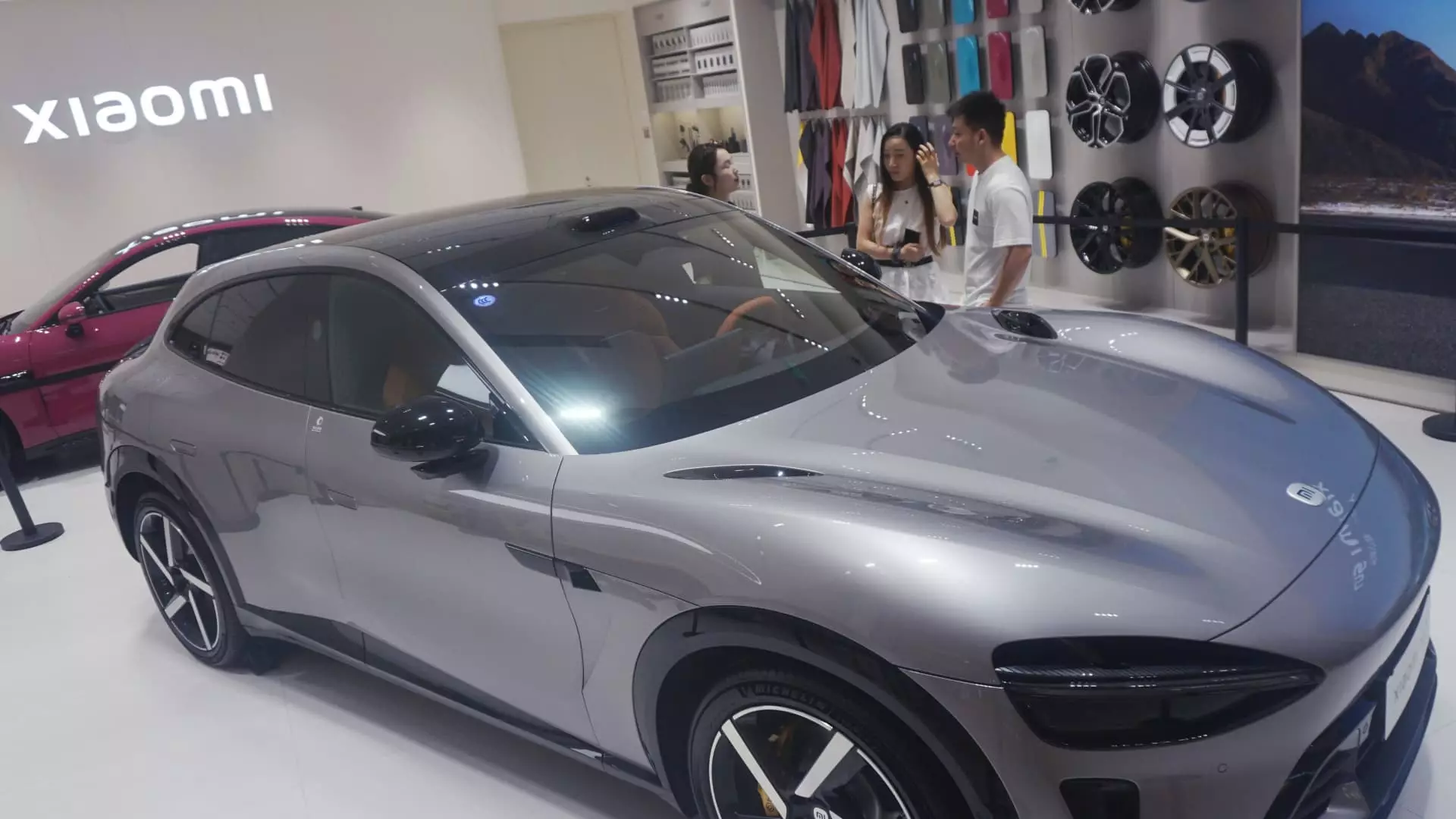Xiaomi’s latest venture into the electric vehicle (EV) sector, the YU7 SUV, has not only made waves but also turned heads within a market dominated by Tesla. Striking a bold competitive stance, CEO Lei Jun proudly announced that the YU7 will retail at 253,500 yuan ($35,322), neatly undercutting Tesla’s Model Y by 10,000 yuan. This strategic pricing decision is not merely a marketing gimmick; it represents an assertive challenge to established players in an increasingly saturated market, setting the stage for an intriguing showdown between two titans.
Given that the Toyota Rivals report projected starting prices for the YU7 ranging from 250,000 to 320,000 yuan ($34,800 to $44,590), Xiaomi’s choice to lean towards the lower end sends a clear message: they are intent on capturing a considerable chunk of the EV market share, with ambitious sales forecasts indicating monthly targets of about 30,000 units. This aggressive pricing strategy coupled with reported pre-sale orders exceeding 200,000 within just three minutes of its launch could redefine consumer expectations and choices in the developing EV landscape.
An Unconventional Approach
What truly distinguishes the YU7 is not simply its price, but the combination of specifications and technology that aim to surpass Tesla’s offerings. Xiaomi has made bold claims about the SUV’s capabilities, including a remarkable driving range of at least 760 kilometers (472 miles) on a single charge – marginally better than Tesla’s longest-range Model Y variant, which boasts 719 kilometers. With consumers often concerned about EV infrastructure—particularly the anxiety caused by battery charging—the YU7 positions itself as a viable contender that alleviates these concerns effectively.
In an industry where advanced driver-assist features play a pivotal role in consumer decisions, Xiaomi acknowledges a shortcoming relative to Tesla. While the YU7 is equipped with cutting-edge driver-assist software powered by Nvidia’s Thor chip, the assertion that it “falls short” in this area could fuel skepticism among potentially discerning buyers. Nevertheless, there lies an inherent advantage in Xiaomi’s rapid iteration and learning curve, enabling them to potentially unveil even more advanced features in future updates, thereby pivoting their reputation forward.
Innovation Beyond the SUV
In conjunction with the YU7’s release, Xiaomi unveiled several additional products, notably their highly anticipated AI-connected glasses. With features that rival tech giants like Meta’s offerings, the glasses not only transition the consumer experience but also elevate Xiaomi’s brand image into innovative territories. From browsing apps to scanning QR codes for payments, these glasses highlight the interconnectedness that marks Xiaomi’s trajectory, positioning them not solely as a smartphone or now, an EV manufacturer, but as a holistic technology ecosystem provider.
This broader vision is essential. The modern consumer is increasingly looking for integrated technological experiences that transcend the singular functionality of a device. By delivering a suite of products, Xiaomi isn’t just selling a car; they are positioning themselves as the architects of an interconnected lifestyle—one where smartphones, cars, and wearables meld seamlessly together.
The Road Ahead: A Price War and Brand Loyalty
As we stand at the precipice of an electric car price war, Xiaomi’s YU7 SUV lays down a gauntlet that will push rivals like Tesla to reassess their pricing and value propositions. This isn’t merely a competition of technologies; it represents a deeper battle for the hearts and wallets of modern consumers, many of whom prioritize affordability without sacrificing quality. The enthusiasm surrounding the rapid pre-sale response for the YU7 signals a readiness among buyers to explore alternatives to entrenched leaders like Tesla.
In a marketplace that thrives on speculation and innovation, Xiaomi’s audacious entry with the YU7 can potentially foster a re-evaluation of brand loyalty. The company’s strategic maneuvers illustrate their desire to challenge the status quo, but it remains essential for them to effectively leverage the initial momentum. With consumer sentiment rapidly shifting and competitors being pushed to rethink their strategies, the future of the EV segment may no longer rest solely with one dominant player.
Xiaomi is demonstrating not only the capability to disrupt an established sector but also a foresight in recognizing and leveraging the broadening scope of consumer expectations. The YU7 SUV stands as a testament to this dynamic—what happens next could reshape the entire EV conversation and unlock new paradigms of competition.

